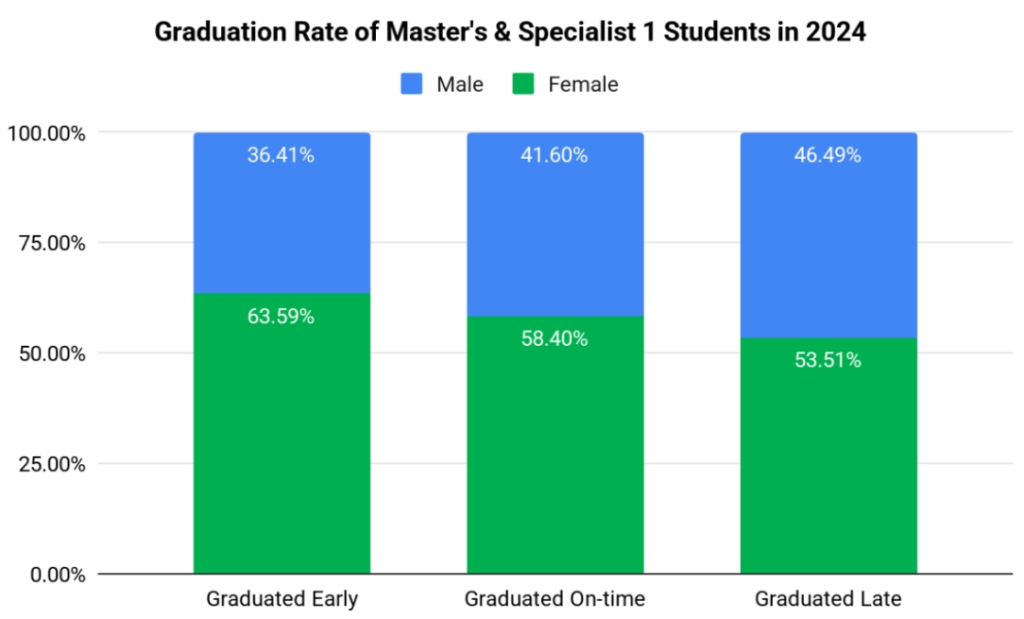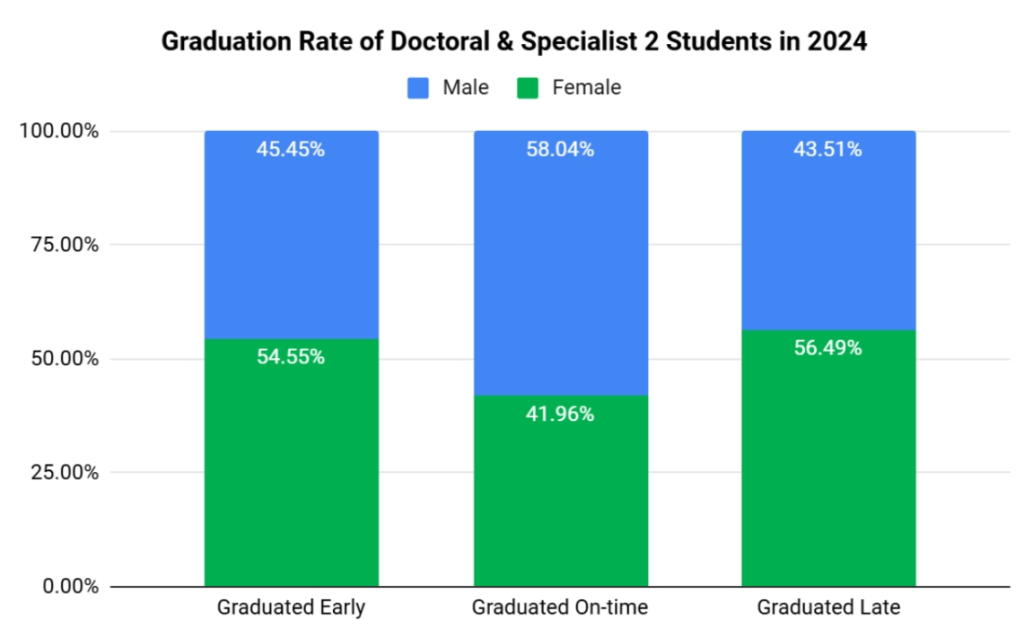
Equality and Non-discrimination Policies
At Universitas Indonesia we place a high value on equality and fairness at every level and maintain policies that protect students, staff, and lecturers from all forms of discrimination. Under the Statute of Universitas Indonesia (Government Regulation No. 75 of 2021), the university is committed to providing equal opportunities and fair, non‑discriminatory treatment to all members in carrying out their duties and in developing academic and other activities, without regard to race, ethnicity, religion, gender, marital status, age, disability, or sexual orientation.
This commitment is reinforced by Rector’s Regulation No. 4 of 2024 on the Code of Ethics and Code of Conduct, which prohibits UI members from discriminating against other members or third parties and forbids the development of academic or other activities on discriminatory grounds; these protections apply to students, staff, and lecturers. For human resources, Rector’s Decree No. 33 of 2018 requires that HR management be based on professionalism, justice, and equal rights, ensuring non‑discrimination on the basis of ethnicity, religion, race, or gender and guaranteeing equal rights for persons with disabilities. This decree also mandates that permanent staff promotions be conducted objectively and transparently, based solely on the competencies, qualifications, and requirements of the position, without discrimination.
Policies Protecting Those Reporting Discrimination
To demonstrate our commitment to equality and fairness, Universitas Indonesia has implemented SIPDUGA, the Reporting System for Alleged Violations at Universitas Indonesia. This reporting mechanism covers actions suspected of violating the Universitas Indonesia code of ethics, internal regulations, or statutory law and applies to all members of the Universitas Indonesia community including students, lecturers, educational staff, and researchers. The system is designed to protect integrity, transparency, and accountability on campus. Reportable actions include plagiarism; forgery or manipulation of academic documents; corruption, collusion, and nepotism; theft; damage to Universitas Indonesia facilities; gratification; abuse of authority or position; conflict of interest; financial manipulation; occupational health and safety violations; sexual harassment or indecency; sexual violence; violations of other codes of ethics and conduct; violations of employee discipline; violations of other internal regulations; violations of statutory laws and regulations.
Through SIPDUGA, confidentiality and protections are guaranteed. The reporter’s identity and the report contents are kept confidential and known only to the receiving teams, and anyone managing SIPDUGA is prohibited from interfering with that confidentiality. Universitas Indonesia guarantees protection from unfair dismissal; demotion or reduction in rank; harassment or discrimination; bullying; and adverse entries in the individual’s personal records. Legal basis for SIPDUGA includes Rector’s Regulation No. 59 of 2022 on the Mechanism for Imposing Sanctions; Rector’s Regulation No. 36 of 2022 on the Reporting System for Alleged Violations; Rector’s Regulation No. 91 of 2022 on the Prevention and Handling of Sexual Violence; Rector’s Regulation No. 60 of 2022 on the Mechanism for Imposing Sanctions; Rector’s Regulation No. 4 of 2024 on the Code of Ethics and Code of Conduct; and Circular Letter No. 02 of 2024 on the Implementation of the Program for Prevention and Handling of Sexual Violence.
Maternity and Paternity Policies
Universitas Indonesia recognizes and values the parental roles of our community members and is committed to enabling staff to meet their responsibilities as mothers and fathers. To that end, Universitas Indonesia has codified maternity and paternity provisions in Rector’s Regulation No. 33 of 2018 on the Management of Resources. Articles 65, 73, 74, and 76 stipulate that maternity leave does not reduce annual leave entitlement; employees are entitled to up to three calendar months of maternity leave with full pay; and male employees whose wives give birth or undergo a cesarean section may be granted leave for important family reasons.
Policy on and Tracking Access Measures for Women at Universitas Indonesia
At Universitas Indonesia, we systematically measure and track women’s application, acceptance, and entry rates through an integrated, web‑based admissions information system, and this practice is embedded in our broader commitment to fairness and gender equality. Universitas Indonesia’s commitment to fairness in new student intake is codified in Statuta Universitas Indonesia under Government Regulation No. 75 of 2021 (Clause 3, UI values: fairness) and implemented through a series of Rector’s decrees covering bachelor, master, doctoral, international, and professional programs (Rector Decrees No. 1 of 2024, 2 of 2024, 3 of 2024, 20 of 2025, and 29 of 2022) that operationalize equitable admissions policies. These governance instruments establish the institutional mandate for equal access and provide the regulatory basis for collecting and monitoring admissions data across programs.
In practice, the Directorate for Student Admission operates an integrated, web‑based database management system (penerimaan.ui.ac.id) that records application and selection data and is used to measure application and acceptance rates, including gender‑disaggregated metrics. Because the admissions platform centralizes applicant records and selection outcomes, Universitas Indonesia can systematically monitor trends in women’s application rates, acceptance rates, and entry (matriculation) rates over time, enabling us to identify disparities and design targeted interventions if needed.
Gender statistics on student admission in 2025 can be seen below.

Women’s Access Schemes
Universitas Indonesia embeds fairness in admissions within its institutional framework, aligning university values with national regulation and internal implementation rules. Statuta UI and subsequent rectoral regulations operationalize this commitment across program levels, ensuring that admissions policies are applied consistently for bachelor, master, doctoral, professional, and international tracks. As a result, UI’s admissions processes are designed to treat applicants equitably regardless of gender while preserving merit‑based selection criteria.
Balanced gender representation is reflected in year‑to‑year intake data and academic outcomes, with female students demonstrating academic parity with male peers in graduation rates and performance indicators. Because the evidence shows no systemic disadvantage for women in either access or academic progression, Universitas Indonesia does not implement women‑exclusive admissions schemes. Instead, the university focuses on universal policies that maintain fairness while remaining responsive to individual needs.However, Universitas Indonesia actively encourages and supports female applicants and students through practical measures. The university provides an easily accessible scholarships portal (beasiswa.ui.ac.id) that centralizes scholarship opportunities, application guidance, and administrative workflows. Faculties and student affairs units offer hands-on assistance with scholarship applications and required documentation, and academic staff provide mentoring and recommendation support where appropriate. These measures ensure that female students who seek financial or programmatic support can access it efficiently and with institutional backing.
Mentoring Schemes for Women
As previously stated, Universitas Indonesia does not operate an institution‑wide mentoring scheme exclusively for women because current monitoring shows no systemic disadvantage in access or academic outcomes for female students. The university’s approach is data‑driven where interventions are introduced when evidence indicates a sustained gap, rather than by default. Universitas Indonesia prioritizes merit‑based, equitable treatment and avoids gender‑exclusive intake or blanket programs when parity is demonstrated. This preserves resources for targeted measures that address verified needs and prevents unintended distortions in selection or support processes.
However, Universitas Indonesia continues to embed justice, equality, and fairness across policies and practice. Other than non‑discrimination policies and human resources principles that protect all community members, these values are reinforced in everyday practice. For newly recruited staff, Universitas Indonesia’s nine institutional values are presented during induction. For students, a course called Integrated Personality Development Course (MPKT) is mandatory during freshman year. This course teaches students about ethics, conduct, and the nine institutional values of Universitas Indonesia. During their academic experience at Universitas Indonesia, students are provided with an academic supervisor that may provide academic, as well as personal and professional mentoring and advice.
Tracking Women’s Graduation Rate at Universitas Indonesia
As a higher education institution committed to providing equal access to education, Universitas Indonesia believes that the fight for education equality for women doesn’t just stop at admission. Ensuring that we provide adequate support to our female students is something Universitas Indonesia continuously strives for. In order to effectively identify problem areas and plan appropriate countermeasures, Universitas Indonesia tracks the graduation rates of our female students over the years.
For undergraduate programs, the graduation rate for female students at the undergraduate/professional level showed better results than for males. 57.84% of females (107 students) graduated early and 54.92% (949 students) graduated on time. Meanwhile, in the late graduation category, the proportion of males (221 students; 54.17%) was higher than that of females (187 students; 45.83%).

For master’s programs, the graduation rate for female students at the Master’s/Specialist 1 level showed better results than for males. 63.59% of females (131 students) graduated early and 58.40% (848 students) graduated on time. Meanwhile, in the late-graduation category, the proportion of females (320 students; 53.51%) was higher than that of males (278 students; 46.49%).

Meanwhile, for doctoral programs, the graduation rate for female students at the S3/Specialist 2 level showed better results in the early graduation category, with 12 women (54.55%) compared to 10 men (45.45%). In the on-time graduation category, males (83 students; 58.04%) had a higher proportion than females (60 students; 41.96%). Meanwhile, in the late graduation category, females (74 students; 56.49%) slightly outnumbered males (57 students; 43.51%).

The data indicate no significant gender gap in graduation outcomes. Notably, at the undergraduate level, women are more likely to graduate early and on time. Based on this data, we have identified that there is no need for significant changes in programs to further support women. However, Universitas Indonesia will continue to commit to the betterment of our existing support programs for women.